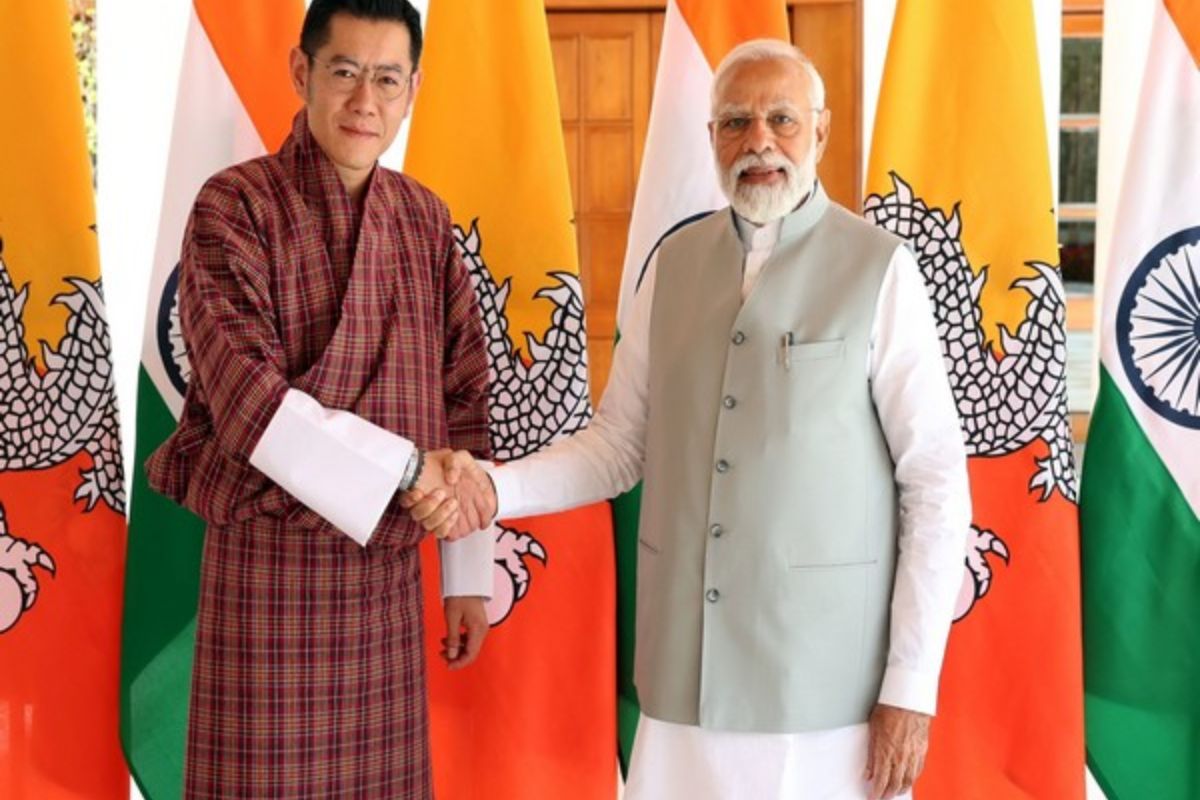In the world of geopolitics, a subtle shift can send ripples through the intricate web of international relations. Such a ripple is currently echoing across the Himalayas even as Bhutan’s King Jigme Khesar Namgyel Wangchuck visited India this week. While the visit officially focused on diplomatic and economic cooperation, it is the unspoken subject of Bhutan’s border dispute with China that loomed large, leaving New Delhi in an intricate dance of strategic calculus. The timing of King Wangchuck’s visit is anything but coincidental. Just weeks ago, Bhutan’s Foreign Minister Tandi Dorji returned from a “grand success” tour to China, marked by a historic “Cooperation Agreement” between the two nations.
This pact outlined the responsibilities and functions of the Joint Technical Team tasked with delimiting and demarcating the Bhutan-China boundary. In essence, a crucial step in the long-standing boundary dispute seemed to have been taken. While the official statements after King Wangchuck’s meeting with Prime Minister Narendra Modi remain conspicuously silent on any direct discussions regarding Bhutan’s border dispute with China, the implications are clear. Whispers of Bhutan inching closer to resolving its border differences with China are becoming a persistent murmur, and this cannot be lost on India. At the heart of India’s concerns is the possibility of China exerting its influence on Bhutan’s stance in the border dispute.
Advertisement
The Doklam plateau, a remote yet strategically sensitive region where Bhutan, India’s Sikkim and China’s Tibet Autonomous Region converge, has been a focal point of tension. India’s immediate fear is that China may pressurise Bhutan into conceding control over this territory, jeopardising India’s security interests in the region. It is important to note that Bhutan and China do not have formal diplomatic relations, and their border dispute has remained unresolved. This situation raises the stakes for both Bhutan and India as the latter strives to maintain its influence over its neighbour’s strategic decisions. The BhutanChina border talks have been in hibernation for several years, and the sudden progress has caught India by surprise. The joint statement issued after the King’s meeting with Prime Minister Modi emphasised various aspects of the India-Bhutan partnership, from rail connectivity to trade, mutual investments, and people-topeople contacts.
It’s silence on the border dispute speaks volumes. India is carefully observing the Bhutan-China relationship, which, if normalised, could tip the balance of power in the Himalayan region. It is evident that the Indian government views any change in Bhutan’s approach toward China as a matter of strategic significance, especially given China’s recent attempts to establish full-fledged diplomatic relations with Bhutan and its persistent efforts to claim territory like Doklam. This visit serves as a reminder that in the delicate geopolitics of the Himalayas, the strategic moves of a small kingdom can send ripples far beyond its borders, making it a region worth watching with vigilant eyes. In its bid to be seen as a global power, India must not lose sight of its neighbourhood.











